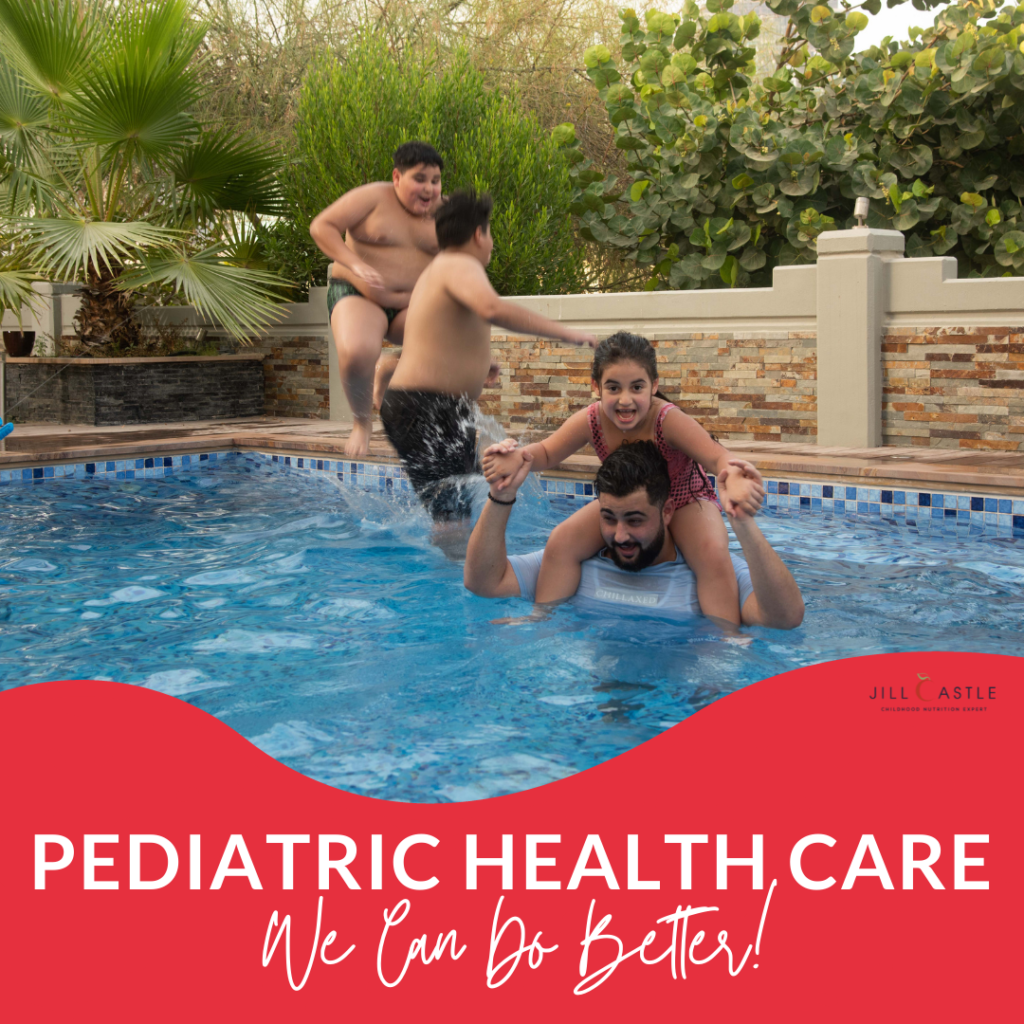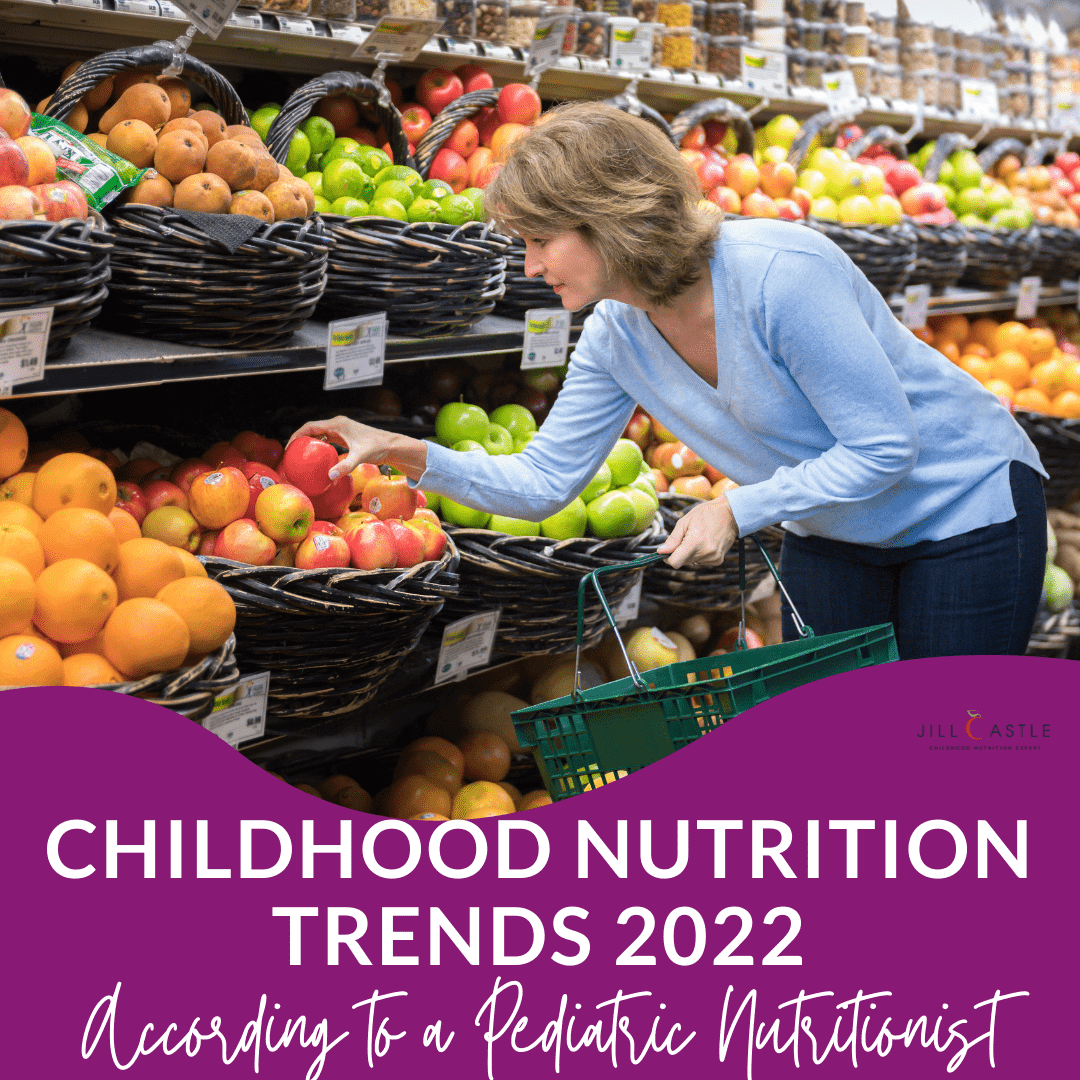A Better Investment in Pediatric Health Care
As the incidence of weight problems in kids rise, health concerns may follow. A simple solution is right under our noses: Pediatric health care that focuses on parenting food and feeding kids.
“Why do you think so many kids have a weight problem?” an acquaintance asked me recently. “I just don’t understand it. Is it food? Not enough exercise? Bad parenting?”
According to the Centers for Disease Control and Prevention (CDC), 14.4 million children and teens are affected by obesity. That’s 19.3% of all kids and teens.
Sadly, these numbers have only increased, especially during the pandemic. Kids aged 5 to 11 years averaged a 2.3 kilogram (or about 4.5 pounds) weight gain, just three months into the pandemic, according to a recent study in the Journal of the American Medical Association (JAMA).
Food always comes up as the number one cause.
High fat food. Sugary food. Processed food. Fast food. Carbs. Calories.
You name it. There’s always some food we can eat less of, eat more of, or not eat at all.
Number two: Not enough physical activity.
The message to parents? Manage both better.
Yet, research tells us there’s a strong genetic predisposition to obesity. In fact, the research is suggesting that 70% of obesity is heritable and there are several (50 or so) genes that are involved.
For some of us, the tendency to carry extra body weight is something with which we were born.
A genetic predisposition doesn’t mean families should throw in the towel, however. We know the environment a child grows up in is a powerful influence on his health and well-being.
Childhood obesity is not about less food and more activity.
Many factors play a role in a child’s risk of gaining body fat.
Let’s look at one aspect that not only influences whether a child will grow up with a larger body, but also affects nearly every eating concern and potential health condition a child may encounter.

Feeding a Child Doesn’t Require a Degree, But Education Goes a Long Way
With feeding kids, many parents muddle through the day-to-day job with no compass, no strategy, and no system for nourishing and feeding their children.
They’re on a trail without a map.
On a road trip without Waze.
They’re headed in the general direction (due North), but wandering a bit, hoping to get there in one piece, and without too much wasted time.
I’m talking about a parent’s knowledge of nutrition for kids and feeding them.
A lack of know-how in nutrition and feeding not only complicates any parents’ efforts in this area, it sets up significant road blocks for those who are trying their best to raise kids with good health and well-being.
One of the Most Important Jobs of Parenthood
I think you know how important nutrition is to children. It is the backbone of their growth. But you may not know that feeding them is equally important as the food they eat.
Good feeding helps kids establish a positive relationship with food.
Through birthing classes and pediatrician visits, parents learn to deliver and nurse or bottle feed their child. But that’s where nutrition education and parenting support ends.
Everything next, such as starting solids, picky eating, eating outside of the home, and navigating typical developmental changes, can be difficult for parents, especially when they’re not sure of the right steps.
The usual struggles and challenges associated with feeding kids mount, and for some parents, become overwhelming. These challenges may worsen when parents don’t know how to handle them.
For example, some parents may deny their kids sweets or second-helpings, especially if they are “bigger” than average. This can lead to an increased desire for sweets, overeating when they have access, and a poor relationship with food.
Parents bribe with treats, which may lead to liking these foods more. Other parents may allow grazing, or they cater to their child’s food requests.
These little, day-to-day feeding interactions may cause more challenges for a child’s eating and health in the long run.
Pediatric Health Care: An Investment in Children’s Health We Need to Make
Parents spend about 12 to 14 hours in birthing classes to prepare for the delivery of their child. Can you imagine what might happen if we devoted that time to educating parents about nutrition and feeding?
Pediatricians are often the first and only resource for families who have challenges with nutrition, including increased weight. And we all know the time spent with pediatricians and other healthcare providers is short, and frequently not enough.
Can you imagine the difference it would make if we invested more in educating parents early on about nutrition? If there were touch points at each growing milestone, such as toddlerhood, childhood and adolescence?
Can you imagine if parents had access to a pediatric nutritionist at their routine check-ups?
We might notice alterations in growth and weight status earlier, and parents and children could get the support they need sooner.
Insurance companies are in the business of supporting obesity treatment, not prevention. Can you see how impactful it could be if insurance companies partnered with parents to support preventative education?
I can see all of this. (In fact, I did a TEDx talk on this very topic.)
I can see how we can improve pediatric health care and change from an illness treatment model to a pro-lifestyle prevention model.
I believe this is exactly what we need to set our sights on as we help all children attain their best health.
I’ve always felt that parents were a forgotten resource in establishing health through nutrition. I dream of a day when we invest in our nation’s parents by preparing them for the job of feeding and nourishing their children.
If we truly want to alter the health of our nation’s children, we need to invest in their parents. We need to build up their knowledge of nutrition and feeding early on and throughout parenthood.
We need to support them through the changing seasons of childhood, preparing them for what to expect, and helping them develop effective strategies for obstacles they encounter along the way.
Parents are the key to their children’s health.
Ready to Get Serious About Children’s Health?
I’ve created an array of education materials for parents on childhood nutrition and feeding kids, including free articles, podcast episodes and workshops, classes and booklets. You can find them all at The Nourished Child®.
If you’re a corporation, business or organization interested in changing children’s health, I can help. Check out my advisor-consultant page and the workshops and speaking events I offer.








